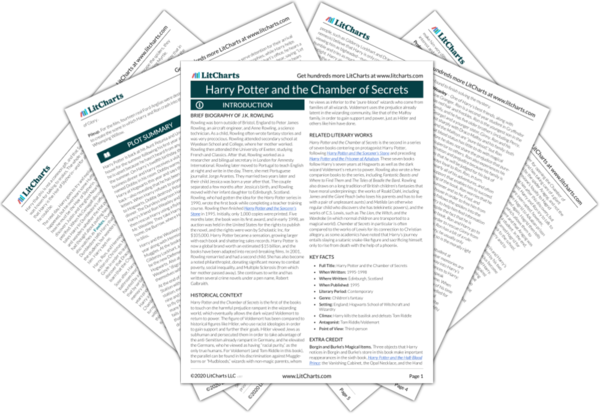LitCharts assigns a color and icon to each theme in Harry Potter and the Chamber of Secrets, which you can use to track the themes throughout the work.
Information, Rumors, and Fear
Friendship, Loyalty, and Bravery
Fate, Choice, and Identity
Rules, Rebellion, and Doing the Right Thing
